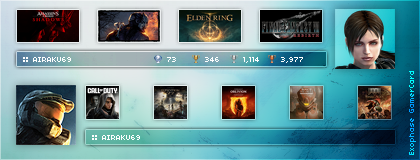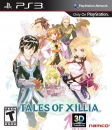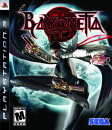Airaku said:
I was only bringing up the biblical example to show a similar base concept between the two. The game really does seem to go into a new age way of thinking at the end of the game, but like you said. It came out of no where. Going with the "all is one" theory. Hence why it is considered canon (by BioWare), but I can see why some will disagree with it. I wouldn't go as far as calling them robots. The combination was supposed to show a peaceful species at the highest point of possible evolution. It's really weird, I know but it's supposed to be a perfect universal utopia where negativity no longer exists. Disagreements are gone, hate is gone. This is why, presumably, the synesthetic ending is the only one where the peace will last as peace will become permanent. The common misconception here is that people think that everyone loses their "individualism" in this ending. *sighs* No!, just no. xD What is a little weird is that Shepard actually embraces this choice. It's the ultimate sacrifice and he/she falls down the middle and disintegrates, symbolically becoming one with the universe. This ending is the only one that gives us an idea of a conclusion to the journey. Call it ridiculous, call it brilliant, call it what you will. They way you've described things regarding the organics and synesthetic suggests that all the Synthetic beings started out as peaceful, but became aggressive due to organics. This seems to be true throughout the game. Organics are the primary aggressors at the end of the day. I've pondered on this multiple times. It's more food for thought than anything. Shepard is both organic and synthetic. Not synthetic in the way of the Geth or EDI. Shepard is half machine with all those implants. They support Shepard and he/she will die if it is destroyed. So in the destroy ending actually kills Shepard. So you must be wondering why you she Shepard in the high War Asset destroy ending? I can't prove anything here but I assume it was part of the cut "indoctrination" ending. Which was a planned, and cut. We are taken back to moments before the citadel and see Shepard wheezing out a breathe on Earth. Shortly after Shepard get's his crew back on the Normandy and toward the Citadel. Harbinger gets a good show on your and you clearly see the laser go toward Shepard. Screen fades to white. From here... it's all fair game and shit gets really weird. Movement, and distorted vision should have been a first clear hint to players. Shortly after Harbinger blasts you.
I'm not sure if this is something I've mentioned before. But one of the thumb rules of gameplay design is to make the right path obvious to the player from the starting point. Meaning they can see the direction where they begin. The Synthesis ending, should it be unlocked for you. Set's straight a head of you. It is also the core of the Citadel/Catalyst. The Destroy and Control ending and left and right from you. Meaning the player needs to look and turn to go off the path. They are called "off sets" or optional paths. If we go strictly by a game design choice. The Synthesis ending is the canon in the designers eyes. Which is of course another thing that was pointed out to me. Unfortunately this is another reason on the pile of why I consider it to be the best choice. At the end of the day. I will repeat what I was chosen. Regardless of what ending they (BioWare) considers to be canon. It is YOUR story. You are Shepard and that canon is yours. Not dictated by any one else. That is how BioWare games function. To give the player as much choice as possible despite technical limitations, that they forge their own story. PS. I do want to add something here. I think the choices for the ending provided a neat little experiment on the human brain and if peace is possible within humanity themselves. Metal Gear Solid V: The Phantom Pain is doing something similar. There is a hidden cutscene that will unlock for everyone if they can set this differences aside and work together to disassemble every nuke in the world. Of course there are a lot of jackasses that continue to build nukes to ensure that this doesn't happen.
|
I was only bringing up the biblical example to show a similar base concept between the two. The game really does seem to go into a new age way of thinking at the end of the game, but like you said. It came out of no where. Going with the "all is one" theory. Hence why it is considered canon (by BioWare), but I can see why some will disagree with it. I wouldn't go as far as calling them robots. The combination was supposed to show a peaceful species at the highest point of possible evolution. It's really weird, I know but it's supposed to be a perfect universal utopia where negativity no longer exists. Disagreements are gone, hate is gone. This is why, presumably, the synesthetic ending is the only one where the peace will last as peace will become permanent. The common misconception here is that people think that everyone loses their "individualism" in this ending. *sighs* No!, just no. xD
If it came out of nowhere, then it's hard to really argue that it is the main theme. It can't be considered canon by Bioware, because canon, by necessity, has to be official.
As for whether there would be peace or not, we don't really know. As I mentioned, even the Geth have wars among themselves. The only reason we have to believe there will be peace is that the starchild said so.
Shepard is both organic and synthetic. Not synthetic in the way of the Geth or EDI. Shepard is half machine with all those implants. They support Shepard and he/she will die if it is destroyed. So in the destroy ending actually kills Shepard. So you must be wondering why you she Shepard in the high War Asset destroy ending? I can't prove anything here but I assume it was part of the cut "indoctrination" ending. Which was a planned, and cut. We are taken back to moments before the citadel and see Shepard wheezing out a breathe on Earth. Shortly after Shepard get's his crew back on the Normandy and toward the Citadel. Harbinger gets a good show on your and you clearly see the laser go toward Shepard. Screen fades to white. From here... it's all fair game and shit gets really weird. Movement, and distorted vision should have been a first clear hint to players. Shortly after Harbinger blasts you.
Shepard was knocked unconcious, so you could argue that he was just groggy from that. But, there are a whole lot of things that just plain don't make sense unless you go with a dream sequence theory. Some of the holes were filled in with the extended cut, but I'd still say the indoctrination theory is a perfectly valid interpretation.
At any rate, Shepard living (which is made even more clear in the extended cut) signifies that the Starchild is not always right, or not only truthful. He says Shapard will die, and he doesn't. So, reason to doubt that.
Earlier we see Shepard in dream states with the child throughout the game. This is also from the indoctrination ending. ME2 had some codec entries that foreshadow this and outline it in the Indoctrination codec entry. I still don't understand to this day, why the ending where Shepard lives is still in the game. All it does is make people believe that the indoctrination theory is true, when it is not. It's been cut from the game. The scene serves no purpose and is contradictive and irrelevant to the ending the game shipped with. Maybe it remains as a nod, I don't know.
The scene was in both versions, and expanded on the second. So, I have to believe they left it there for a reason. The indoctrination theory does make a whole lot of sense. I don't know if I actually believe it, but it is a very valid interpretation.
I'm not sure if this is something I've mentioned before. But one of the thumb rules of gameplay design is to make the right path obvious to the player from the starting point. Meaning they can see the direction where they begin. The Synthesis ending, should it be unlocked for you. Set's straight a head of you. It is also the core of the Citadel/Catalyst. The Destroy and Control ending and left and right from you. Meaning the player needs to look and turn to go off the path. They are called "off sets" or optional paths. If we go strictly by a game design choice. The Synthesis ending is the canon in the designers eyes. Which is of course another thing that was pointed out to me. Unfortunately this is another reason on the pile of why I consider it to be the best choice.
Meh. I get what you're saying in most games, but I don't think that would apply to the ending, which is basically an interactive cutscene. It seemed more like a nod to the choice wheel than anything.






















































